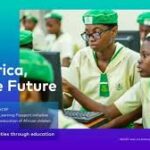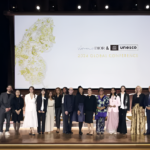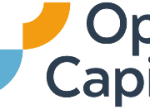The Sub-Saharan Economic Community of West African States (ECOWAS) is investing $38 million to support Small and Medium Enterprises (SMEs) across its member states, according to ECOWAS Chairman President Bola Ahmed Tinubu. This initiative will also extend to Mauritania, the Central African Republic (CAR), Chad, and Cameroon through various commercial and financial institutions. Additionally, $140 million will be allocated to support solar SMEs.
President Tinubu announced these plans at the Sixth Mid-Year Coordination Meeting of the African Union (AU) in Accra, Ghana, where he highlighted ECOWAS’s significant achievements. To enhance sustainable electricity access in the ECOWAS and Sahel regions, the grant of $38 million will be distributed to SMEs, with an extra $140 million loan dedicated to solar-focused SMEs.
During the review period, ECOWAS has supported member states in international environmental meetings, the Paris Agreement, and the establishment of a regional carbon market. The ECOWAS Bank for Investment and Development (EBID) has also approved the Regional Fund for Agriculture and Food (RFAF) to boost food security, aiming for self-sufficiency in rice production. Additionally, ECOWAS has improved pastoralism in the Sahel by vaccinating over 490 million livestock and establishing border control rules for veterinary medicine.
ECOWAS has launched a project for member states to access the Green Climate Fund, promoting climate-smart agriculture through advanced technologies. The region also supported six member states in ratifying the WTO Fisheries Subsidies Agreement and 13 in ratifying the AfCFTA agreement. The ECOWAS interconnected System for the Management of Goods in Transit (SIGMAT) is now operational in 12 member states, enhancing regional trade.
In the fight against terrorism, ECOWAS received $4 million in support. Progress in education includes the creation of the West African Network of National Academies of Sciences and the African Forum for Research and Innovation, as well as the regional Academic Mobility Scheme. On health, ECOWAS continues to support women with obstetric fistula, empower women entrepreneurs in agribusiness, and focus on gender equality in education and green economy initiatives.
ECOWAS has allocated $9 million to aid refugees, internally displaced persons, and asylum seekers. The organization is advancing electrification efforts in The Gambia, Guinea-Bissau, and Mali through the ECOWAS-Regional Electricity Access Project (ECOREAP) and is implementing the Regional Off-Grid Electricity Access Project (ROGEAP). Thirty-two Solar Off-Grid SMEs have been approved, including nine led by women, with $3 million allocated to finance them. Over 400 SMEs in 13 countries have received training in 2023 and 2024.
Additionally, the Sixth Legislature of the ECOWAS Parliament elected its first female President, the Right Honourable Maimunatu Ibrahim from Togo. The ECOWAS Community Court of Justice has reviewed 15 new cases, conducted thirty-three court sessions, and delivered eleven judgments.
Despite these achievements, President Tinubu acknowledged ongoing challenges such as member state withdrawals, geopolitical rivalries, terrorism, food insecurity, climate change, and the spread of misinformation. ECOWAS plans to continue dialogue with Burkina Faso, Mali, and Niger to maintain unity and will convene a Special Extra-ordinary Summit to discuss the Community’s future.
The statement also noted that the ECOWAS Commission has been chairing the Inter-REC platform since February and has hosted the East African Community (EAC) and the Intergovernmental Authority on Development (IGAD) to discuss various issues and review best practices. ECOWAS remains committed to collaborating with all AU regional communities to strengthen continental integration.
On the sidelines of the AU meeting, President Tinubu met with Djibouti President Ismail Omar Guelleh, who underscored Nigeria’s crucial leadership role in West Africa and the continent. Both leaders agreed to continue collaborating on development issues and shared challenges.








